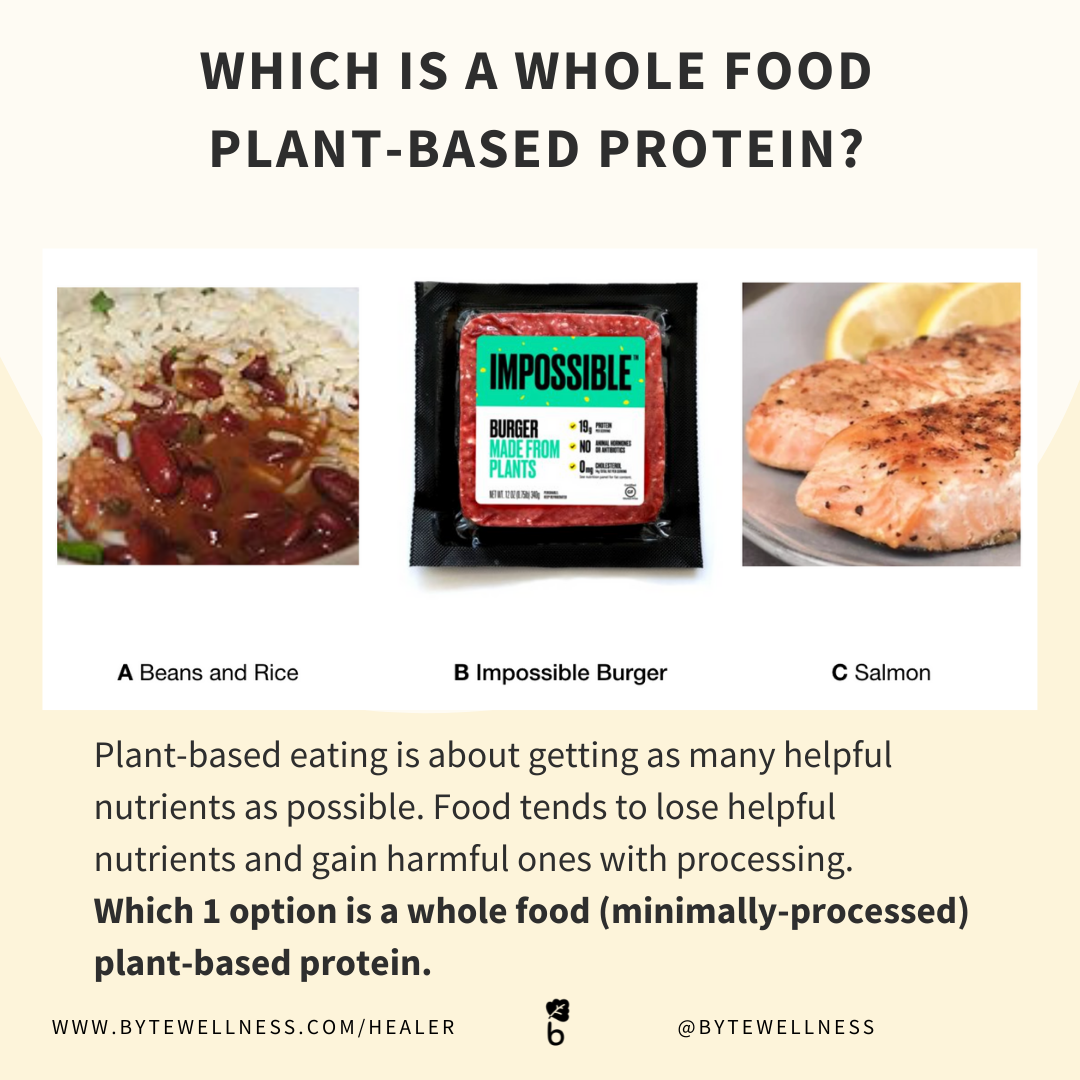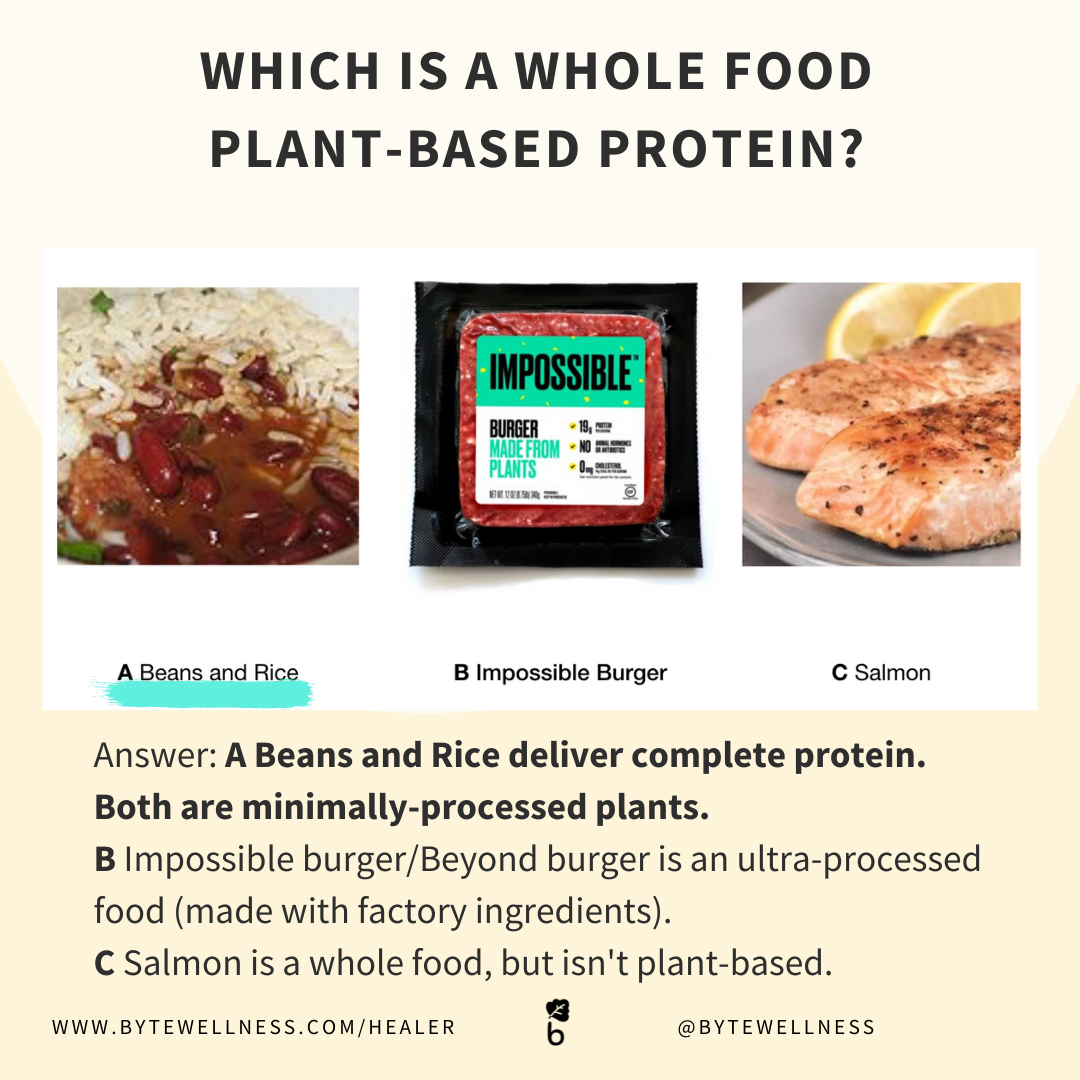Yara Shahidi’s Productivity Secret and Impossible Burger Review
Hi Byte Wellness Family: How are you doing in your respective towns? Summer is easing out the door, and the air is beginning to feel a little crispier here in Chicago.
This week, we’ll keep it short and sweet. We’re talking self-care for productivity and reviewing plant-based proteins. If you’re not getting a wellness lesson from us every day, you should be! You will LOVE our Daily Wellness Text thread. Send TEXT to 1(224)302-6224 to join. It’s free in September, then only $5.99/month (!!!).
Okay, Actress Yara Shahidi is only 21 years old, but she put us on game in her Marie Claire cover story this month. In her interview with Lola Ogunnaike, she passes on this self-care gem she learned from her mother: “In order for you to do your best work, you have to take care of yourself.”
First of all. Go Mama Shahidi! She clearly taught Yara well.
Next, there are so many values to anchor our self-care efforts in: Personal responsibility, health goals, pleasing appearance, etc. For me, doing my best work is as strong a motivation as any to take care of myself. Eating, moving, resting and interacting with the healthcare system in beneficial ways keeps our bodies and minds strong enough to DO THE WORK- whatever that work is (taking care of family dependents, working your 9-to-5, building up your side hustle, etc).
Let’s hear from you. How much does your desire to be strong enough and well enough to impact your world factor into your everyday decisions?
Later in the week, we reviewed plant-based proteins. I’ll keep this brief because we covered the topic in quite a bit of detail a couple months ago. We sent this quiz to our Daily Wellness Text members, and they texted back their responses. Let’s see how you online folks fare.
What’s A Whole Food Plant-Based Protein?


All right. We had a few confused ppl on the text thread. Which answer did you pick?
Scroll to the right to read the answer.
If you picked B, and you’re super confused about why that is not the correct answer, keep reading friend ; )
Impossible Burger Review (from a health perspective)
Is impossible burger healthy? And what about its plant-based meat cousin…Is beyond meat healthy? There probably aren’t enough people asking these questions. But if you’re one of the curious ones, let’s dive in. As usual, the long answer is ‘it’s complicated’. But the short answer, as our Daily Wellness Text members now know, is NO.
The logic we use at Byte Wellness to think about whether a food or drink is “healthy” relies on one basic question: do the parts of this food that build you up far outweigh the parts that break you down? If the answer is yes, then eating this puts your body at a health advantage…(that’s what people call healthy). If the parts of the food that break you down outweigh the parts that build you up or the balance is nearly even, then that food puts you at a health disadvantage. You might call that food unhealthy.
So where does impossible “ground beef “fall on the spectrum? We’d have to look at its ingredients for that.
What Is Impossible Burger Made Of?
Listen. If you want to know what’s in a food, google the ingredients list. We do this exercise all the time in our weekly virtual workshops. Here’s a picture of what the Impossible Foods website says about the ingredients in Impossible ground beef (from faq.impossiblefoods.com):
There is not one whole food listed in the ingredients. Every ingredient after water has been extracted from its whole food version. Coconut oil and sunflower oil are the least-processed ingredients on the entire list! Sis… that’s what we call an ultra-processed food.
You’ll remember, if you’ve taken our Share & Savor course, that an ultra-processed food is a food that is more factory-product than real food. An ultra-processed food is one that you could never make with the equipment in your home kitchen and ingredients you’d by at a grocery store. Here is how the ingredients list breaks down:
98% water, processed soy protein and disadvantageous fat profile (coconut oil and sunflower oil)
2% other processed ingredients for flavor and mouth-feel (starches and proteins) plus vitamins
Now, let’s put this into perspective. Whole food plant-based proteins like legumes/beans (including minimally processed soybeans), nuts/seeds and grains offer us protein along with naturally-occurring vitamins, minerals and fiber (all of which build our bodies up). Plant proteins like nuts and seeds offer another benefit: lots of heart-healthy unsaturated fat that overshadows their limited amount of saturated fat.
Compared to the ultra-processed ingredients and the saturated fat and pro-inflammatory omega 6s in (coconut oil and sunflower oil, respectively), whole food plant protein is an obviously “healthier” choice.
Whew! I tried to keep it short this week, but there are so many things you NEED TO KNOW in order to keep showing yourself love with food.
Talk to you next week.
Happy, Healthy Living
Dr. Wuse


